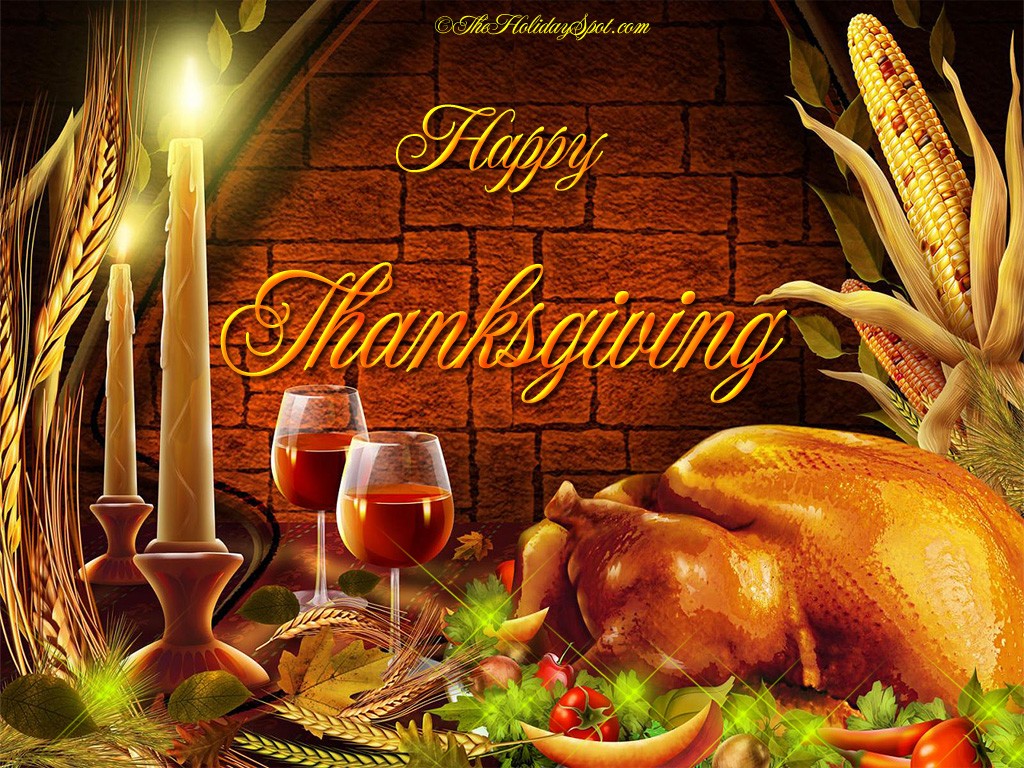Word-Of-the-Week #1007: Thankful
November 25, 2023 by Susan Clarke · Comments Off on Word-Of-the-Week #1007: Thankful
Thankful – appreciative and grateful.
Are you appreciative and grateful for all that you have? Do you acknowledge and thank people when they do something that is of benefit or favorable to you? When you do something kind or giving to someone, do they thank you? How does it make you feel?
This week I am taking the liberty (and the day off ) of re-running my 2010 WOW. Today we celebrate Thanksgiving and I am so grateful for all that I have in my life. I am thankful to be able to travel and experience different cultures. Now that I don’t have to go school, I love learning all the history and the geography. I really enjoy meeting new people and eating good food!
And I am really thankful to be home! We live in a great country with an abundance of everything. (And great paved roads) I have wonderful friends and family and the love of my life! I don’t think it can get any better than that!
And being thankful has its health benefits. Researchers at the University of California-Davis, Cornell and the University of Michigan found that people “who have a plethora of events for which they feel grateful bounce back more quickly from trauma, can undo the negative effects of stress and have lower blood pressure.”
A USA Today article said to, “Notice small things. Experts almost universally agree that some of the most significant blessings are also the most seemingly insignificant acts. Take note of a nice day, a spectacular sunset, a moonlit night.”
This week focus on giving thanks. You can never do it too much. What are you grateful for in your personal and professional life? When was the last time you told your customers, guests, clients, members, friends and family how grateful you are to have them in your life?
I LOVE feedback! Join my Facebook community on my FUN-damentals Fan Page.
Word-Of-the-Week #1006: Disposition
November 16, 2023 by Susan Clarke · Comments Off on Word-Of-the-Week #1006: Disposition
Disposition – one’s usual mood or frame of mind.
What would you say your usual mood is? Do you see the glass half-full or half-empty?
This week features excerpts from a couple of articles on Disposition.
- From the Economist, “Sunny side up – Optimism, it seems, is in the genes.”
“For some people in this world, the glass always seems to be half-full. For others it is half-empty. But how someone comes to have a sunny disposition in the first place is an interesting question.
It has been known for a long time that optimists see the world selectively, mentally processing positive things while ignoring negative ones, and that this outlook helps determine their health and well-being. In recent years, it has also become clear that carriers of a particular version of a particular gene are at higher risk than others of depression and attempted suicide when they face traumatic events.”
And it turns out that some of us have genes that are biased towards positive images and away from negative ones. In other words, the optimists really do see the world differently. Amazing huh?
She goes on to say, “Rose-tinted spectacles may be good for one’s health, as these results fit in with wider ideas about how a tendency to look on the bright side of life is part of being resilient to stress. Those with short variants of this gene are expected to have an increased susceptibility to mood disorders following such stress. It is not all good news, though, for optimists. Because these results suggest that a person’s attitude to life is inherited, they serve as a stark warning to all buoyant optimists that trying to cheer the rest of the world up with nothing more than a smile and an effortlessly sunny disposition is doomed to failure.”
- And this from Devaney Rae Jones “Is Your Disposition Repelling Your Choices?
Do you ever consider how your disposition affects your available choices in life? Even more, how does your disposition impact your existing relationships, as well as the outcomes in your work or project efforts?
Oh, and for the record: your disposition has to do with your usual mood and your tendencies to act or to think in a certain way.
Your Mindset – is connected to your words. Here’s how the mindset-to-words connection flows: when your established set of attitudes (your mindset) is left unchallenged, over a period of time you generally develop fixed beliefs, strong opinions, and patterned tendencies in your responses and behaviors. These impact your interactions with others about various subject matter, especially your responses and behaviors as reflected through your words. Therefore, your mindset becomes obvious to others through your words.
Here’s the Deal: Are you drawing amazing choices (people and situations) into your life, or do you repel them, through the reflection of your mindset?
- And one more thought from LA Times writer Michelle Vartan about dealing with the winter blues. She writes, “Be Mindful. Brain scans show that practicing gratitude can rewire our reticular activating system – the area of our mind that focuses on good versus bad. Once you wake up, instead of focusing on your to-do list, think of three things you’re grateful for, then get out of bed.”
This week’s focus is on your disposition. Personally I have always believed that your disposition is a choice and can be changed. Given that, would you keep the disposition you have? Have you figured out what is FUN for you? It just might change your disposition if you did it more!
I LOVE feedback! Join my Facebook community on my FUN-damentals Fan Page.
Word-Of-the-Week #1005: Choices
November 9, 2023 by Susan Clarke · Comments Off on Word-Of-the-Week #1005: Choices
Choices – acts of picking or deciding between possibilities.
Do you believe in the axiom that life is 10% about what happens to you, good and bad, and 90% about how you choose to react to what happens to you? Are you afraid to take chances or explore new opportunities?
This week features Phil Blair, San Diego UT writer and co-founder of Manpower Staffing, “Good luck, positive attitude comes to those who create it.”
“I believe that much of what happens in our lives is the product of sheer chance, the result of larger, unpredictable forces colliding to create circumstances that shape and direct our lives.
Like luck.
If you think you’re lucky, you probably are. And if you think you are unlucky, you probably are. Years ago, Henry Ford said, “Whether you think you can, or you think you can’t — you’re right.”
Attitude matters, especially when you’re interviewing for your next opportunity. Negativity about yourself in any setting comes through loud and clear, and it never helps.
I have limited patience with job-seekers who come to me and complain about all the bad luck they’ve had to deal with, blaming that on why they can’t seem to get hired.
It’s so obvious in an interview when the applicant gives the impression that they know they’re not going to get hired. That’s when the pity party starts and doesn’t end. You can tell they just want to get the interview over.
It’s as if they say, “No one has hired me yet, and I know you’re not going to hire me, so let’s get this over as fast as we can.”
Believe me, these kinds of negative thoughts and emotions will adversely impact both your career and your personal life for a long time.
- How you choose to react to what happens to you
I’m also a believer in the axiom that life is 10% about what happens to you, good and bad, and 90% about how you choose to react to what happens to you.
I thrive around positive, upbeat people, those who view their proverbial glass as half-full, even running over the top. That’s how they approach bumps in the road.
These are my favorite “lucky” people, those who have positive things to say about themselves. They’re naturally more happy than sad. They tend to laugh at themselves. They don’t take themselves too seriously.
They’re not afraid to take chances or explore new opportunities. They tend to be healthy and have plenty of friends. They’re ambitious, confident, creative, curious, fun to be around.
More often than not, they’re successful.
Another trait of these “lucky” people is that they’re rarely critical or envious of others’ success. They’re forgiving of weaknesses or flaws or mistakes, including their own. They generally go out of their way to find the positive in any situation.
Maybe that sounds too Pollyannaish.
But through my own life’s ups and downs, thankfully many more ups, two prevailing tenets have guided my view of the world:
– Whatever happens to you, make it work for you. When something goes wrong, don’t blame others. And try not to blame yourself too much.
– Try to get through each day by making smart, focused decisions, large and small, that lead to positive outcomes. Soon enough, they’ll add up.
- You’re either working or looking to get hired
Generally speaking, it’s said that only 40% of workers enjoy what they do for a living. They rise and shine each morning, do whatever it is they do and they usually come home feeling like they’ve done something worthwhile.
The flip side of the workaday grind isn’t so appealing. Anger. Resentment. Conflict. Blame. Shame. Drudgery. Every day like the next, with no end in sight.
It’s all about getting that paycheck, and the weekend can’t come fast enough.
Since about half of our waking lives are spent working, I believe it’s paramount that what we do for a living, how we earn a living, and how we feel about what we do five days a week, 40 hours a week — sometimes less, often more — is something we truly enjoy.
At least most of the time.
Looking ahead, I want you to be able to say that your career was a great achievement, maybe the greatest of your life. And that you did everything you could to make it that way.
Because there’s nothing else besides working for a living that provides as many financial rewards and as much security, and also imbues us with a greater sense of pride, accomplishment, and fulfillment.
And if you’re as lucky as I’ve been, enjoyment.
This week is all about choices. Do you truly enjoy what you do for a living most of the time? Are you forgiving of weaknesses or flaws or mistakes, including your own? Are you ambitious, confident, creative, curious, fun to be around?
I LOVE feedback! Join my Facebook community on my FUN-damentals Fan Page.
Word-Of-the-Week #1004: Halloween
November 2, 2023 by Susan Clarke · Comments Off on Word-Of-the-Week #1004: Halloween
Halloween – what we celebrated this week. 😊
I thought it would be FUN to share how Halloween started and the difference between it and Day of the Dead.
Its origins date back to the ancient Celtic festival of Samhain (pronounced sow-in). The Celts, who lived 2,000 years ago, mostly in the area that is now Ireland, the United Kingdom and northern France, celebrated their new year on November 1.
This day marked the end of summer and the harvest and the beginning of the dark, cold winter, a time of year that was often associated with human death. Celts believed that on the night before the new year, the boundary between the worlds of the living and the dead became blurred. On the night of October 31, they celebrated Samhain, when it was believed that the ghosts of the dead returned to earth.
To commemorate the event, Druids built huge sacred bonfires, where the people gathered to burn crops and animals as sacrifices to the Celtic deities. During the celebration, the Celts wore costumes, typically consisting of animal heads and skins, and attempted to tell each other’s fortunes.
When the celebration was over, they re-lit their hearth fires, which they had extinguished earlier that evening, from the sacred bonfire to help protect them during the coming winter.
In the eighth century, Pope Gregory III designated November 1 as a time to honor all saints; soon, All Saints Day incorporated some of the traditions of Samhain. The evening before was known as All Hallows Eve, and later Halloween. Over time, Halloween evolved into a day of activities like trick-or-treating, carving jack-o-lanterns, festive gatherings, donning costumes and eating sweet treats.
- Dia de Muertos, or Day of the Dead, is not a Mexican version of Halloween. Though related, the two annual events differ greatly in traditions and tone.
Whereas Halloween is a dark night of terror and mischief, Day of the Dead festivities unfold over two days in an explosion of color and life-affirming joy. Sure, the theme is death, but the point is to demonstrate love and respect for deceased family members. In towns and cities throughout Mexico, revelers don funky makeup and costumes, hold parades and parties, sing and dance, and make offerings to lost loved ones.
The Day of the Dead (Spanish: el Día de Muertos) is a holiday traditionally celebrated on November 1 and 2. It is widely observed in Mexico, where it largely developed, and is also observed in other places, especially by people of Mexican heritage. Although related to the simultaneous Christian remembrances for Hallowtide, it has a much less solemn tone and is portrayed as a holiday of joyful celebration rather than mourning. Some argue that there are Indigenous Mexican or ancient Aztec influences that account for the custom, and it has become a way to remember those forebearers of Mexican culture. The multi-day holiday involves family and friends gathering to pay respects and to remember friends and family members who have died. These celebrations can take a humorous tone, as celebrants remember funny events and anecdotes about the departed.
Traditions connected with the holiday include honoring the deceased using calaveras and marigold flowers, building home altars called ofrendas with the favorite foods and beverages of the departed, and visiting graves with these items as gifts for the deceased. The celebration is not solely focused on the dead, as it is also common to give gifts to friends such as candy sugar skulls, to share traditional pan de muerto with family and friends, and to write light-hearted and often irreverent verses in the form of mock epitaphs dedicated to living friends and acquaintances. The rituals are rife with symbolic meaning. The more you understand about this feast for the senses, the more you will appreciate it.
Click the link to find out the Top 10 things to know about the Day of the Dead.
I LOVE feedback! Join my Facebook community on my FUN-damentals Fan Page.
Word-Of-the-Week #1003: Guffaw
October 26, 2023 by Susan Clarke · Comments Off on Word-Of-the-Week #1003: Guffaw
Guffaw – a hearty, boisterous burst of laughter.
When was the last time you experienced true, unforced laughter? Do you remember what triggered it and how it made you feel? Do you know that laughter can have a positive impact on your health?
This Chicago Tribune article by Marissa Levin, “FUNNY BUSINESS Cutting up at work offers host of benefits. Corporate America needs to loosen up” is so on target and a major point I made in my speeches.
“According to research from Wharton, MIT and the London Business School, giggles and guffaws offer several business benefits. Laughter can relieve stress and boredom, boost engagement and well-being and spur not only creativity and collaboration, but also focus and productivity, Harvard Business Review notes.
Babies laugh about 400 times a day; people over 35, only 15, Harvard reports. A recent study of Gallup data for the U.S. found that we laugh significantly less on weekdays than we do on the weekends.
- With the onslaught of negative information coming at us these days, going to an office that values fun helps us to maintain perspective and optimism.
At my first company, Information Experts, we had a Good Times Committee (GTC) that was responsible for planning fun events. We had a line item in our budget for fun. No matter what the day held, we knew there would be some laughter along the way.
This week features 2 ways workplace goofiness can improve your culture and bottom line.
Laughter keeps us focused on tasks.
In a study, psychological scientists David Cheng and Lu Wang of the University of New South Wales found that people who watched a funny video clip spent twice as long on a tedious task compared to people who watched neutral or positive (but not funny) videos.
“There has been increasing recognition that humor may have a functional impact on important behaviors in the workplace, and that exposure to humor may increase the effectiveness of employees,” Cheng and Wang write.
Laughter is a great natural team builder.
A study from the staffing firm Accountemps revealed that nearly 80 percent of executives said an employee’s sense of humor is important for fitting into the company’s corporate culture.
Mike Steinitz, executive director of Accountemps, said an employee’s sense of humor can boost morale and improve connections with co-workers.
- “Creating a positive and friendly work environment can lead to higher levels of employee engagement and productivity.”
Humor also can lighten the mood when something goes wrong.
“Not all business matters are funny, but a little levity can go a long way, particularly when it comes to defusing tension or recovering from a minor mishap,” he said. “There’s nothing like a joke to put people at ease.”
This week is all about guffaws. How would you rate your sense of humor? How often do you laugh in any given day? Do you work in a positive friendly environment? Are you fully engaged and productive?
I LOVE feedback! Join my Facebook community on my FUN-damentals Fan Page.






